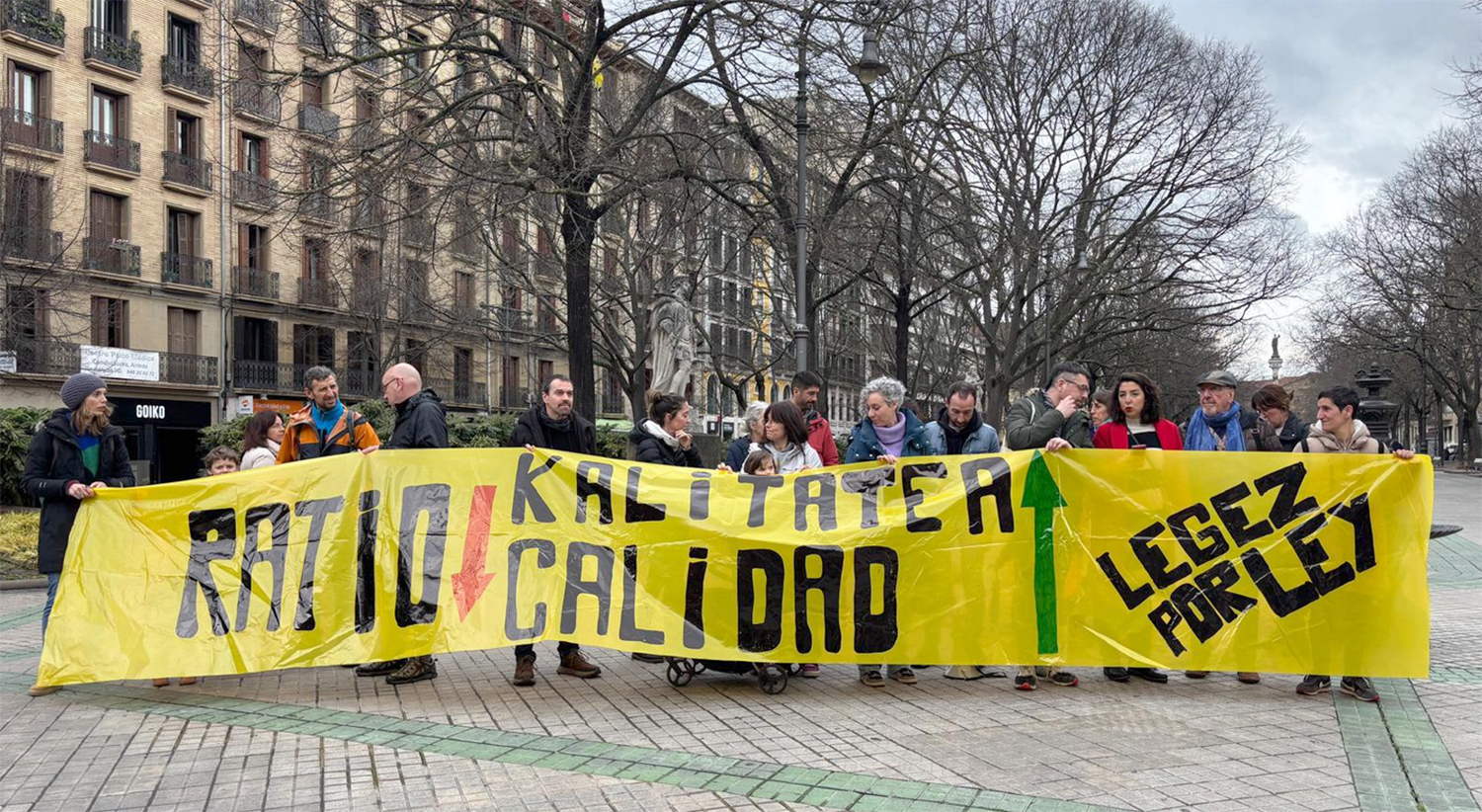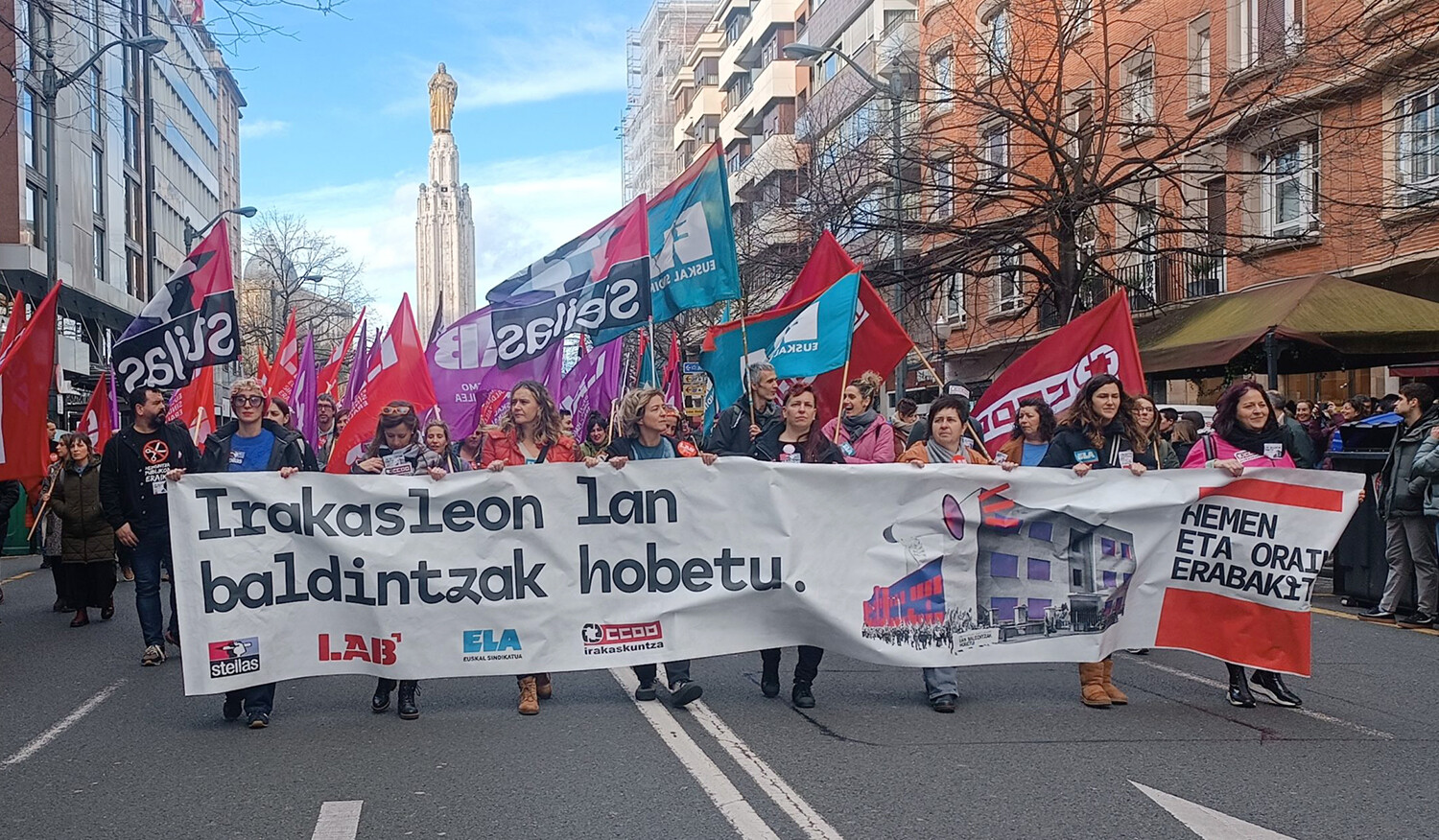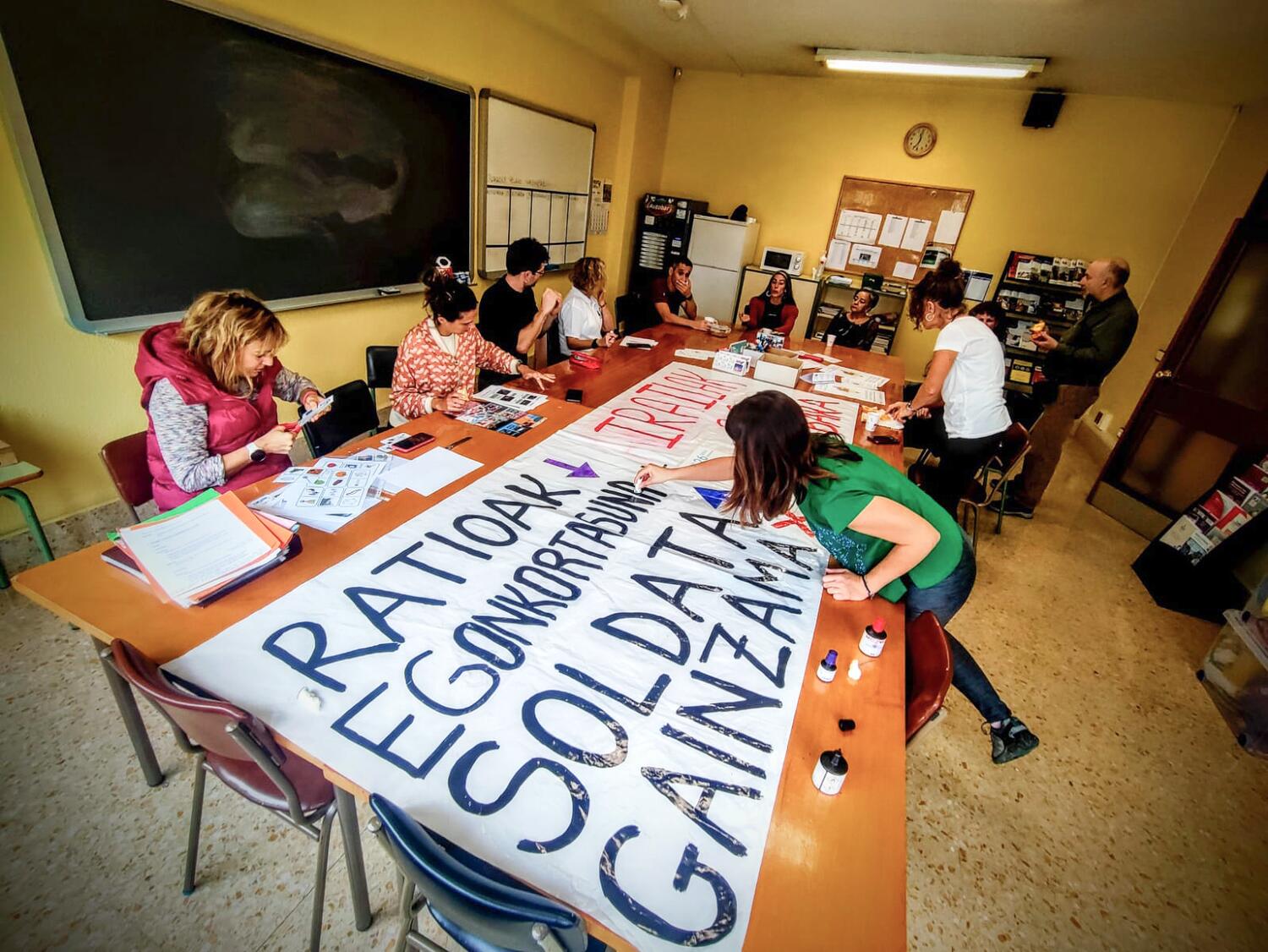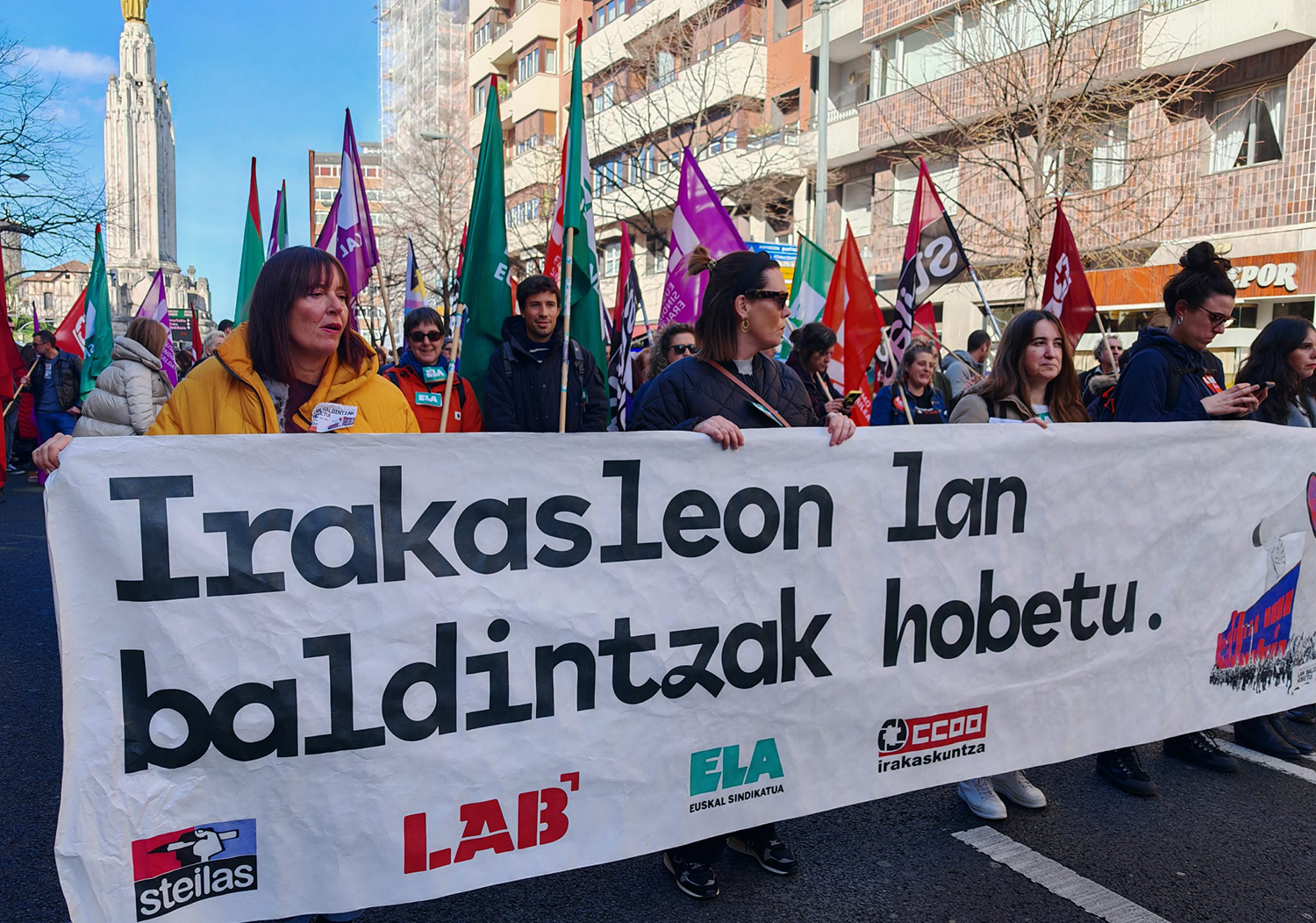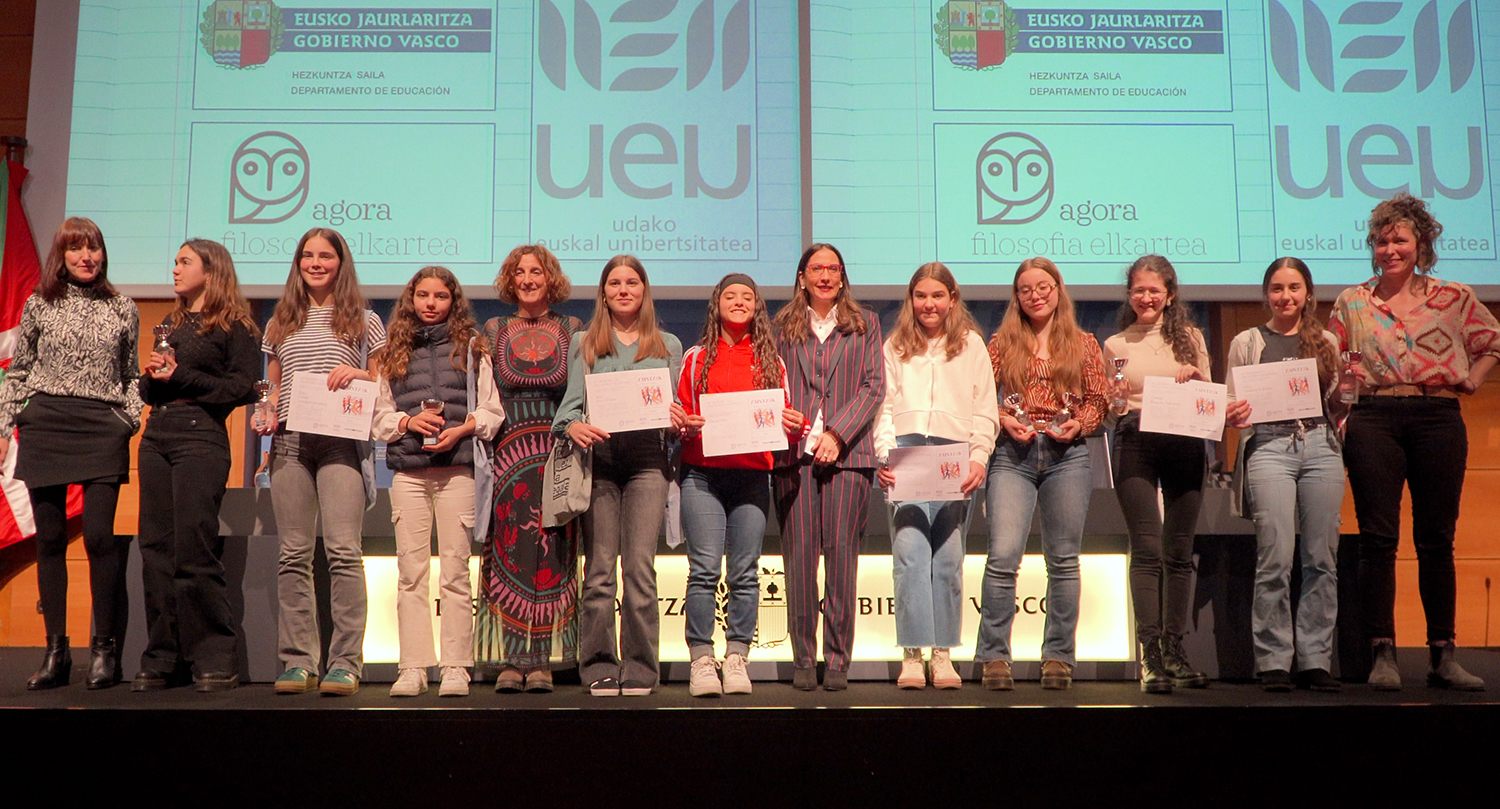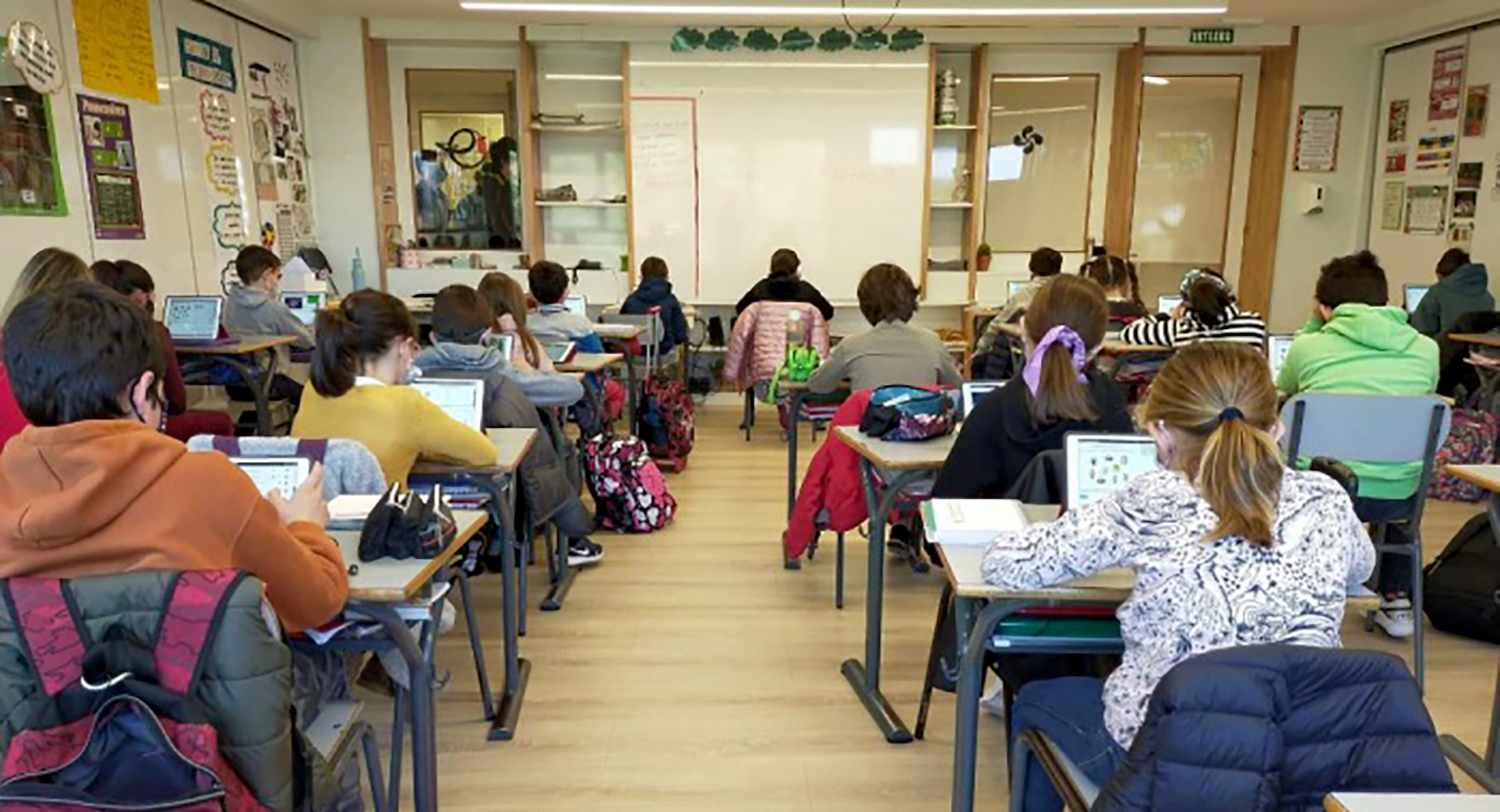Roadmap for the construction of the ecofeminist school
- In the fight for gender equality and against the impoverishment of a large part of the population, the Steilas union has launched a teaching unit to work with realistic and fair alternatives in the classrooms: “Let’s build an eco-feminist school.” He proposes exercises and materials for students from Early Childhood Education to Baccalaureate.
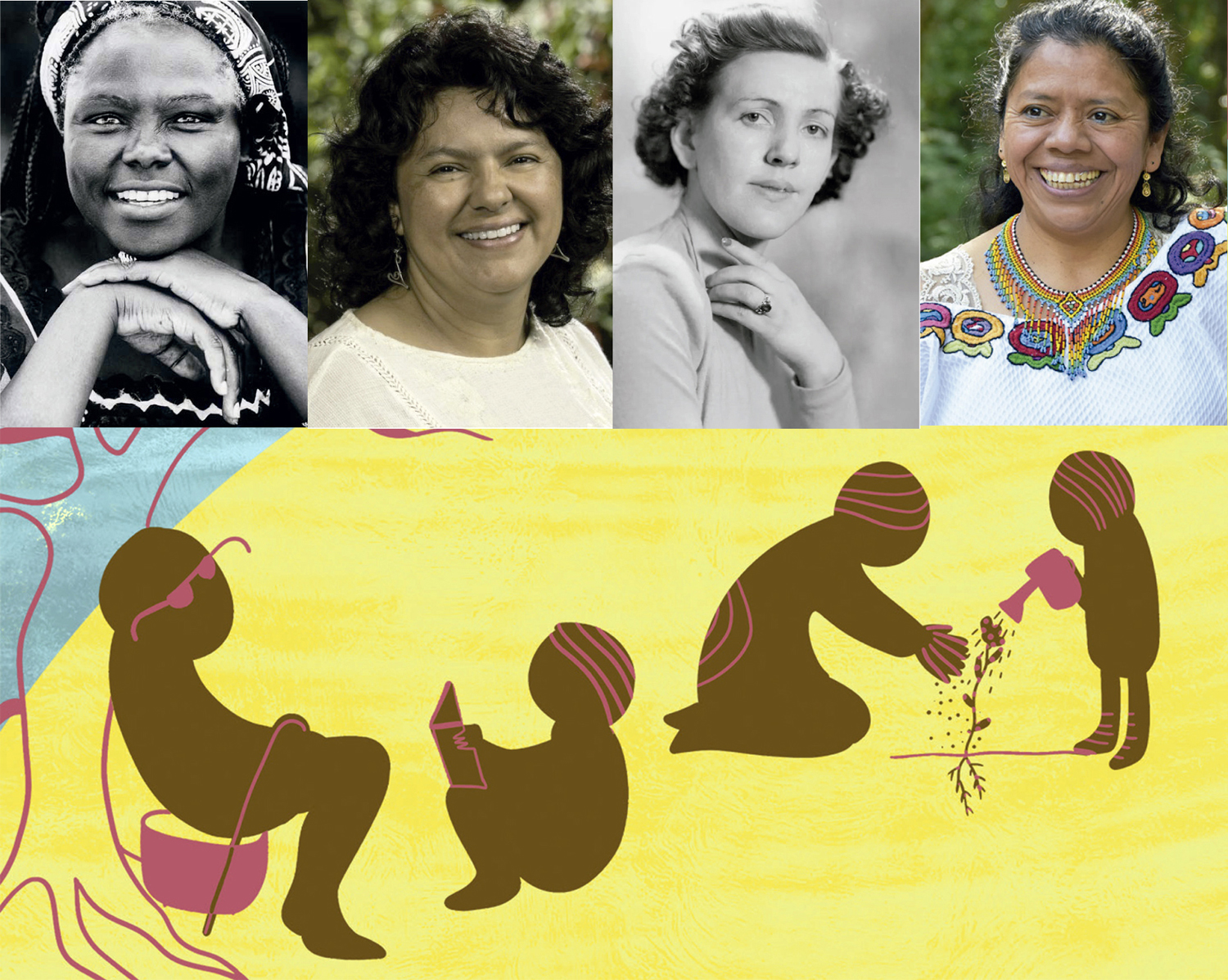
The objectives of the didactic unit are, on the one hand, to review our social organization and the contradictions of our productive and consumption model and, on the other, to propose fairer and more balanced relationships between planets and people to promote the feminist ecological transition in schools.
How would you like to live on the planet?
To this end, they have received actions adapted to age and level of education, to awaken reflection on the issue of ecofeminism, human dependence on nature (to become aware of interdependence and ecodependence), the importance of care between us and the environment, the ecological footprint we leave… In one of the activities, one of them contains the keys to reason and discuss the activities we would like to live on the planet, as well as human activity.
The didactic unit includes drawings, stories, audio-stories and audio-visual of different ages and educational levels, among which is the story “Sponsors who want to make visible the work of women who put their bodies to protect nature, our planet”. In fact, the document makes room for several eco-feminists: Berta Cáceres Flores, who fought for the defense of the rights of indigenous peoples in Honduras, Wangari Maatha, campaigner for sustainable development, Françoise d’Eabonne, who made it clear that the development of capitalist societies was based on the exploitation of nature and women, and Aura of the rights of women,
You can download the teaching unit in this link.
Seme-alabek eskolan dituzten ratioekin kezkatuta, Arartekoari kexa helarazi zion guraso talde batek, eta orain zuzenean Parlamentuari egin diote eskaera, “legez berma dadin gure seme-alaben hezkuntzaren kalitatean oinarrizkoa den neurria, unean uneko aurrekontuez edo... [+]
Ikasleen lan politikoa jazartzeko asmoz, Iruñeko Iturraman eta Biurdanan nahiz Bilboko Unamunon izan dira polizia-indarrak, IAk salatu duenez.
Memoria eta Bizikidetzako, Kanpo Ekintzako eta Euskarako Departamentuko Memoriaren Nafarroako Institutuak "Maistrak eta maisu errepresaliatuak Nafarroan (1936-1976)" hezkuntza-webgunea aurkeztu du.
570.000 familiak euren haurren ikasgeletako hizkuntza nagusia zein izango den bozkatzeko aukera dute martxoaren 4ra arte: gaztelera edo katalana. Garikoitz Knörr filologoaren eta euskara irakaslearen arabera, kontsultak "ezbaian" jartzen du katalanaren zilegitasuna... [+]
Uribe Kosta BHI institutuko hainbat ikaslek salatu duenez, mezu "iraingarriak, matxistak eta homofoboak" jaso dituzte Batxilergoko beste ikaskide batzuengandik. Horrez gain, gaineratu dute mezuak irakasle bati ere bidali dizkiotela eta beste ikasle batzuen... [+]
Aiaraldeko hainbat irakaslek mezua igorri diete ikasleen guraso eta familiei, dagoen informazio zurrunbiloan, grebarako arrazoiak modu pertsonalean azaltzeak euren borroka eta lanuztea hobeto ulertzeko balioko dielakoan.
Euskal hezkuntza sistemaren itunpeko eskolen gainkontzertazioa eta zentro pribatuen umeak hartzeko gaitasuna beherakada demografikoari eta biztanleriaren klase osaketari egokitu behar dira.
Grebaren bezperan Hezkuntza Sailak “edukirik gabeko” mahaia deitu zuela eta sindikatu deitzaileak “errespetatu gabe” akordioa “antzezteko” gutxiengoa duten sindikatuak “erabili” nahi izan zituela salatu ostean, beste bi greba... [+]
Nola azaldu 10-12 urteko ikasleei bioaniztasunaren galerak eta klima aldaketaren ondorioek duten larritasuna, “ez dago ezer egiterik” ideia alboratu eta planetaren alde elkarrekin zer egin dezakegun gogoetatzeko? Fernando Valladares biologoak hainbat gako eman dizkie... [+]
Une delikatua igarotzen ari den zure lagun minak Taylor Swiften kontzertura joatea proposatu dizu, baina kide zaren elkarte ekologistak elkarretaratzea deitu du, abeslariak sortuko duen kutsadura salatzeko; nora joango zara? Dilema etiko horri erantzun diote gazteek, baita... [+]
Lau mila karaktere ditut kontatu behar dudana kontatzeko. Esan behar ditut gauzak argi, zehatz, soil, eta ahalko banu polit, elegante, egoki. Baga, biga, higa. Milimetrikoki neurtu beharra dut, erregelaz markatu agitazioa non amaitzen den eta propaganda non hasi. Literarioki,... [+]
The time has come for us to enrol in schools in the Basque Country for the 2025-26 academic year, and in many homes the youngest of the household will take a new step soon, in September, which is schooling. Proud of the Basque Public School The members of Topagune are firmly... [+]
Since the adoption of the new Education Law for Álava, Bizkaia and Gipuzkoa, we are hearing/reading again and again that education will be free from now on. We have listened to different actors, including the Department of Education, and in the interviews we offer to the media,... [+]
There are many ways to gain power; not all are beautiful. There are those who want to divide the power and the responsibility that it entails with it, who seek authority. Others have a lot of respect for him and the fact that each step is so measured makes them unable to make a... [+]








